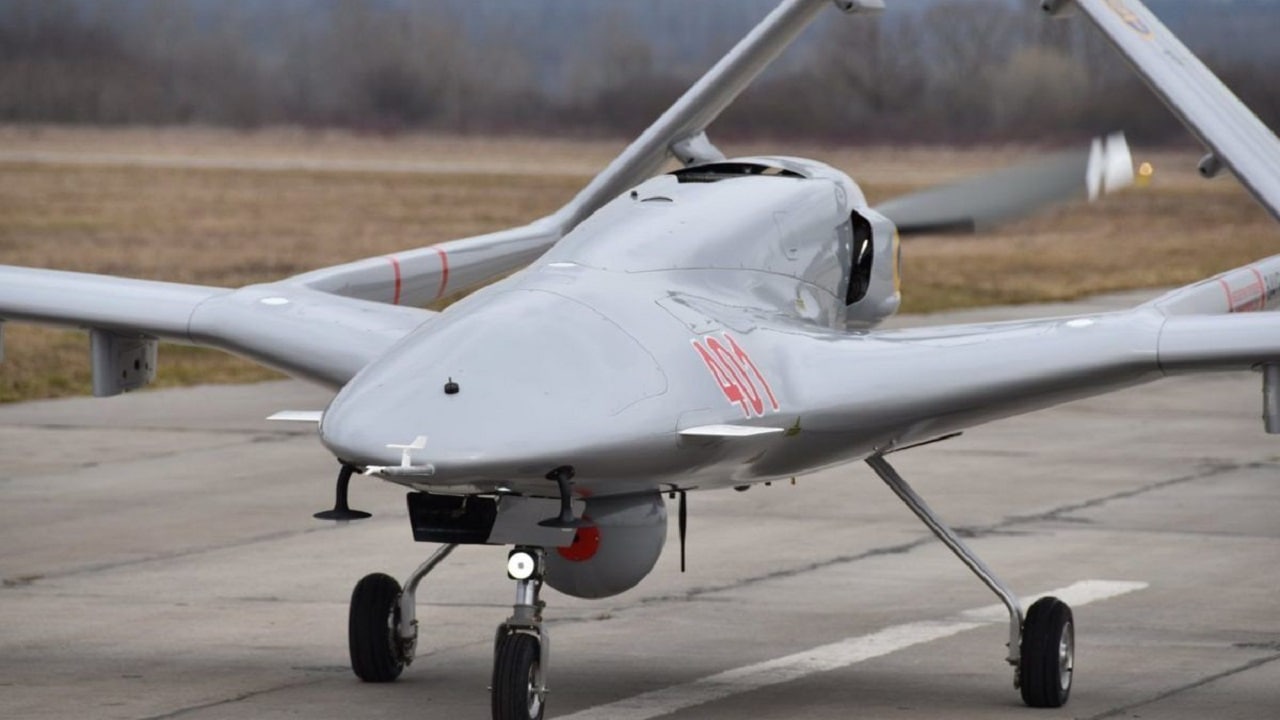Putin Reportedly Lobbied Turkey for Drones, Despite Already Supplying Ukraine – Russian President Vladimir Putin reportedly lobbied Turkish President Recep Tayyip Erdogan to establish a Baykar drone factory to supply Russian forces with unmanned aerial vehicles. The drone Putin is most like after is the TB2, which has been a powerful weapon for Ukraine’s forces against Russia.
According to CNN Turk, a localized Turkish variant of the American news channel CNN, the Turkish president said during a meeting with members of the AK Party Central Executive Committee that Putin approached him about obtaining the same Baykar drones that Ukrainian forces are using in the conflict.
“Putin says, ‘Let’s work together with Baykar,’” Erdogan reportedly said during the meeting, explaining how Putin proposed to establish a new Baykar factory in Russia.
“Putin told me he wants to work with Baykar,” the Turkish leader said. “He proposed to establish a factory in Russia as Baykar has done in the UAE.”
The news of a drone factory in the United Arab Emirates had not been previously reported, and when approached by journalists this week, a Baykar spokesperson refused to comment on the news or the proposal from the Russian government. Middle East Eye reports, however, that a source with knowledge of the matter confirmed that Baykar is in the process of creating a new manufacturing facility in the UAE.
No TB2 for Russia: Baykar Says No
Last week, Haluk Bayraktar, the CEO of private Turkish defense company Baykar Defense, said that Russia would not receive Baykar drones.
“There is a strategic relationship between Turkey and Ukraine, especially in the field of aviation and space,” Bayraktar told CNN, adding that Turkey “supports Ukraine with armed drone technology.”
“We did not transmit or supply anything to Russia. We would never do such a thing.”
While it means Russia won’t gain access to the Turkish drones already in wide use by the Ukrainian military, that doesn’t mean the Kremlin doesn’t have other options. Reports from earlier this month revealed how Russian officials recently paid trips to an airfield in Iran to view a range of attack-capable drones.
Biden administration officials released satellite photographs that show Russian officials visiting Iran’s Kashan Airfield twice this year – on June 8 and July 5 – to see a range of military drones. White House officials also suggested that the drones were either on their way to Russia already, or may have begun shipping.
Baykar’s Bayraktar TB2 drone has proven one of the most effective fixed-wing drones for the Ukrainian military since the beginning of the war. In June, Ukrainian Defense Minister Oleksii Reznikov said that Ukraine had received a total of 50 armed drones from Baykar since the invasion began on February 24.
“Thanks to the powerful cooperation of the presidents of Ukraine, Vladimir Zelensky, and Recep Tayyip Erdogan of Turkey, our military received the first Bayraktar on the battlefield back in 2021, “ Renizkov said in a Facebook post. “They have shown themselves very successfully in the battle.”
Jack Buckby is a British author, counter-extremism researcher, and journalist based in New York. Reporting on the U.K., Europe, and the U.S., he works to analyze and understand left-wing and right-wing radicalization, and reports on Western governments’ approaches to the pressing issues of today. His books and research papers explore these themes and propose pragmatic solutions to our increasingly polarized society.

